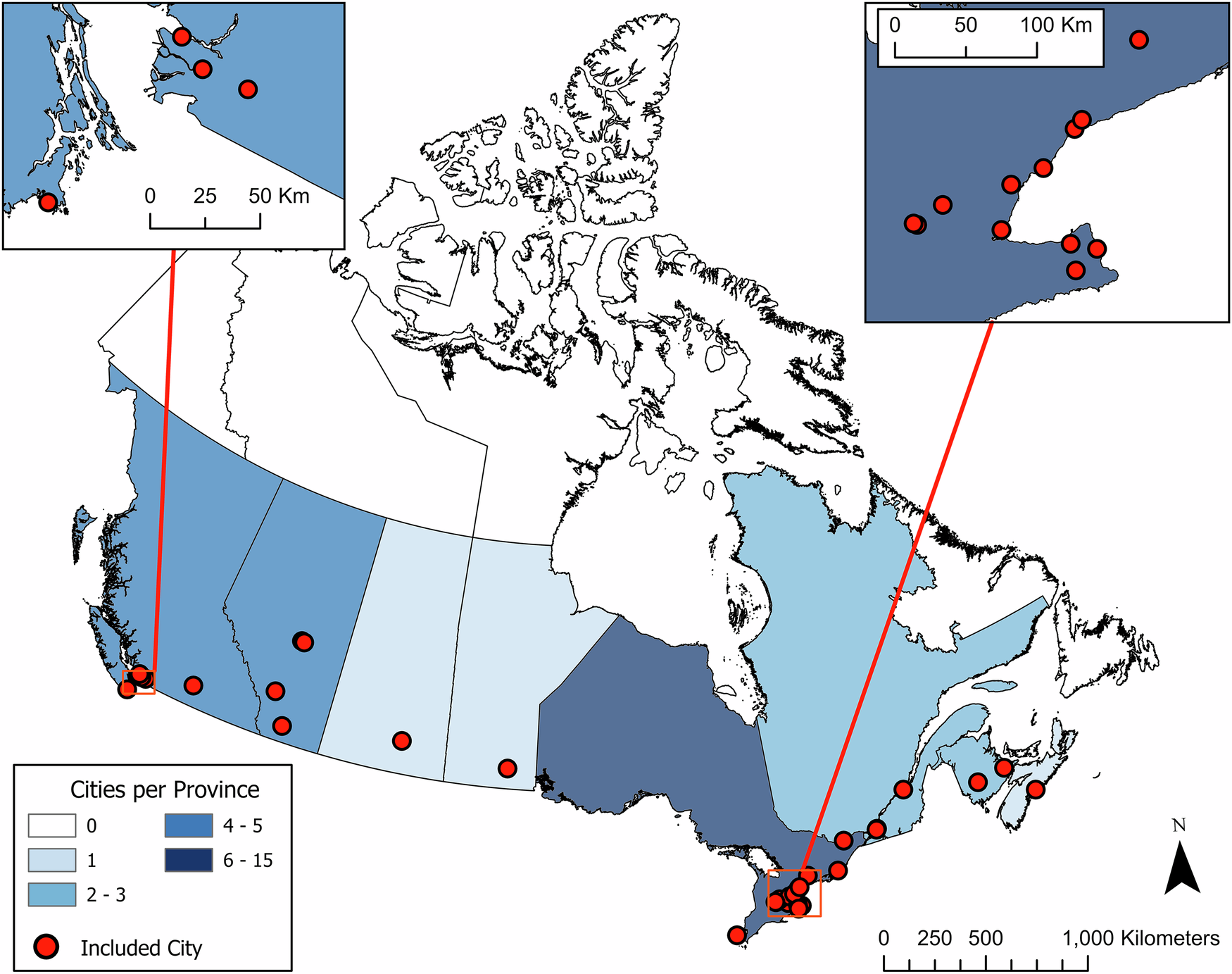2025-07-16 トロント大学
<関連情報>
- https://www.utoronto.ca/news/marginalized-neighbourhoods-across-canada-have-fewer-and-smaller-street-trees-study
- https://www.nature.com/articles/s42949-025-00210-2
カナダの32都市における樹木密度、大きさ、種の多様性の分布不平等 Distributional inequities in tree density, size, and species diversity in 32 Canadian cities
Alexander J. F. Martin,Ashlynn Fleming & Tenley M. Conway
npj Urban Sustainability Published:03 May 2025
DOI:https://doi.org/10.1038/s42949-025-00210-2

Abstract
Urban trees provide numerous benefits that contribute to sustainable cities. Since many of these benefits are localized, the distributional equity of urban trees ensures that ecosystem services support all residents of a city. Previous studies have examined tree distribution at local or regional scales, and thus there is a limited understanding of common patterns in distributional equity. This study examines the distributional equity of street tree density, size, and diversity in 32 Canadian cities to explore congruent and conflicting associations between urban forest distribution and measures of population density and multiple deprivation. Across all cities, tree density was less equally distributed than tree size with median Gini Indices of 0.401 and 0.469, respectively. Socio-demographic associations with street tree characteristics varied, but inequities were generally present across several indicators of marginalization. Given these differing patterns of inequities, researchers must be wary of extrapolating case-study observations to national or regional scales.


